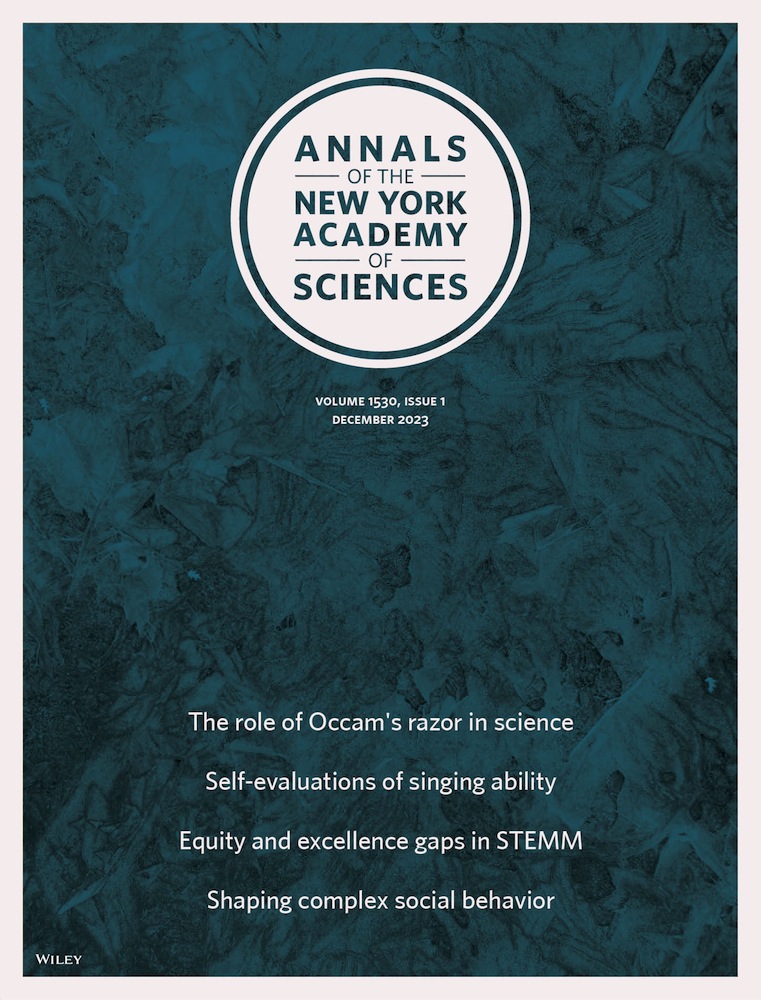跨语言激活的情感调节是一个普遍的领域
IF 4.8
3区 综合性期刊
Q1 MULTIDISCIPLINARY SCIENCES
引用次数: 0
摘要
先前的研究表明,第二语言(L2)中的否定词会阻碍对第一语言(L1)表征的自动访问。然而,尚不清楚这种情绪驱动的抑制是否仅限于语言处理,或者是否扩展到领域一般认知。我们对中英双语者进行了一个内隐翻译启动范式,其中情感语境由图片设定。在每个实验中,参与者报告两个第二语言单词中的任何一个是否在语义上与前面的上下文图片相关,而不知道一些单词对在第一语言中隐藏了语音重叠。值得注意的是,负面图片(而非正面图片)阻碍了对母语翻译对等物的访问。另一方面,汉语对照被试在汉语中表现出重复启动,而与图像效价无关。这些发现表明,非语言线索可以同样有效地触发双语者语言非选择性词汇获取的情绪调节,因为消极图片产生的抑制效应与消极启动词所产生的抑制效应相似。这表明,与传统的模块化和封装的语言观点不同,语言和人类高级认知的其他方面之间的相互作用是相互的——一个单词的意义触发一种情感,而一种情感调节对单词意义的获取——并且是高度整合的。本文章由计算机程序翻译,如有差异,请以英文原文为准。
Affective Modulation of Cross‐Language Activation is Domain General
Previous studies have shown that negative words in a second language (L2) can block automatic access to first language (L1) representations. It is unknown, however, whether such emotion‐driven inhibition is limited to linguistic processing or whether it extends to domain‐general cognition. We engaged Chinese‐English bilinguals in an implicit translation priming paradigm, in which the emotional context was set by a picture. In each trial, participants reported whether either of the two L2 words related semantically to the preceding contextual picture, while being unaware that some of the word pairs concealed a phonological overlap through L1. Remarkably, negative—but not positive—pictures prevented access to L1 translation equivalents. Chinese control participants, on the other hand, showed repetition priming in Chinese irrespective of image valence. These findings show that emotional modulation of language nonselective lexical access in bilinguals can be triggered equally effectively by nonverbal cues since negative pictures produce an inhibitory effect similar to that observed for negatively primed words. This suggests, at variance with a traditionally modularist and encapsulated view of language, that interactions between language and other aspects of higher human cognition are reciprocal—a word meaning triggers an emotion and an emotion regulates access to word meaning—and highly integrated.
求助全文
通过发布文献求助,成功后即可免费获取论文全文。
去求助
来源期刊

Annals of the New York Academy of Sciences
综合性期刊-综合性期刊
CiteScore
11.00
自引率
1.90%
发文量
193
审稿时长
2-4 weeks
期刊介绍:
Published on behalf of the New York Academy of Sciences, Annals of the New York Academy of Sciences provides multidisciplinary perspectives on research of current scientific interest with far-reaching implications for the wider scientific community and society at large. Each special issue assembles the best thinking of key contributors to a field of investigation at a time when emerging developments offer the promise of new insight. Individually themed, Annals special issues stimulate new ways to think about science by providing a neutral forum for discourse—within and across many institutions and fields.
 求助内容:
求助内容: 应助结果提醒方式:
应助结果提醒方式:


